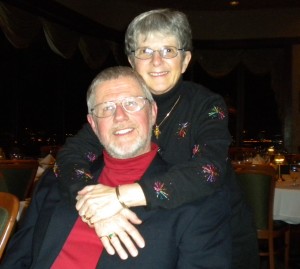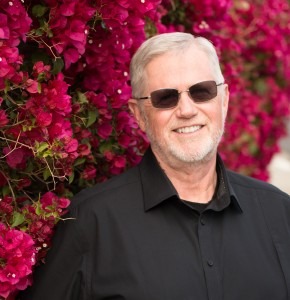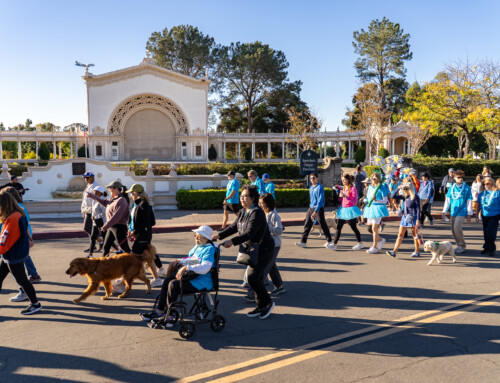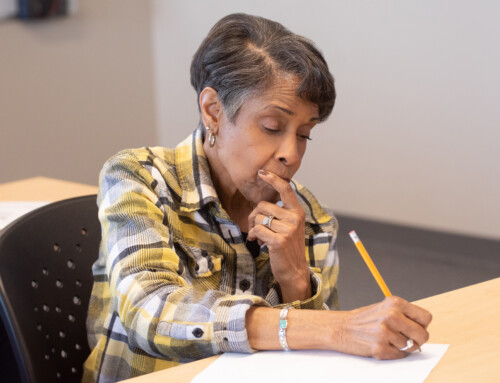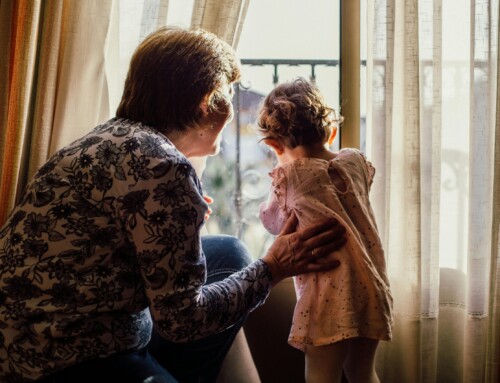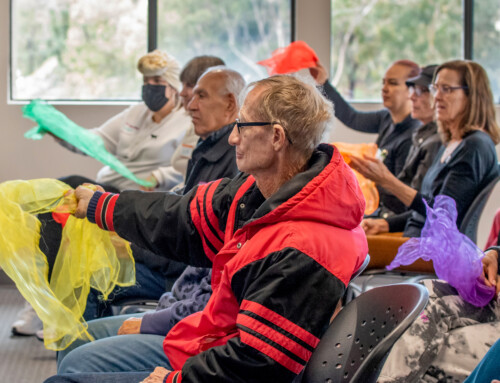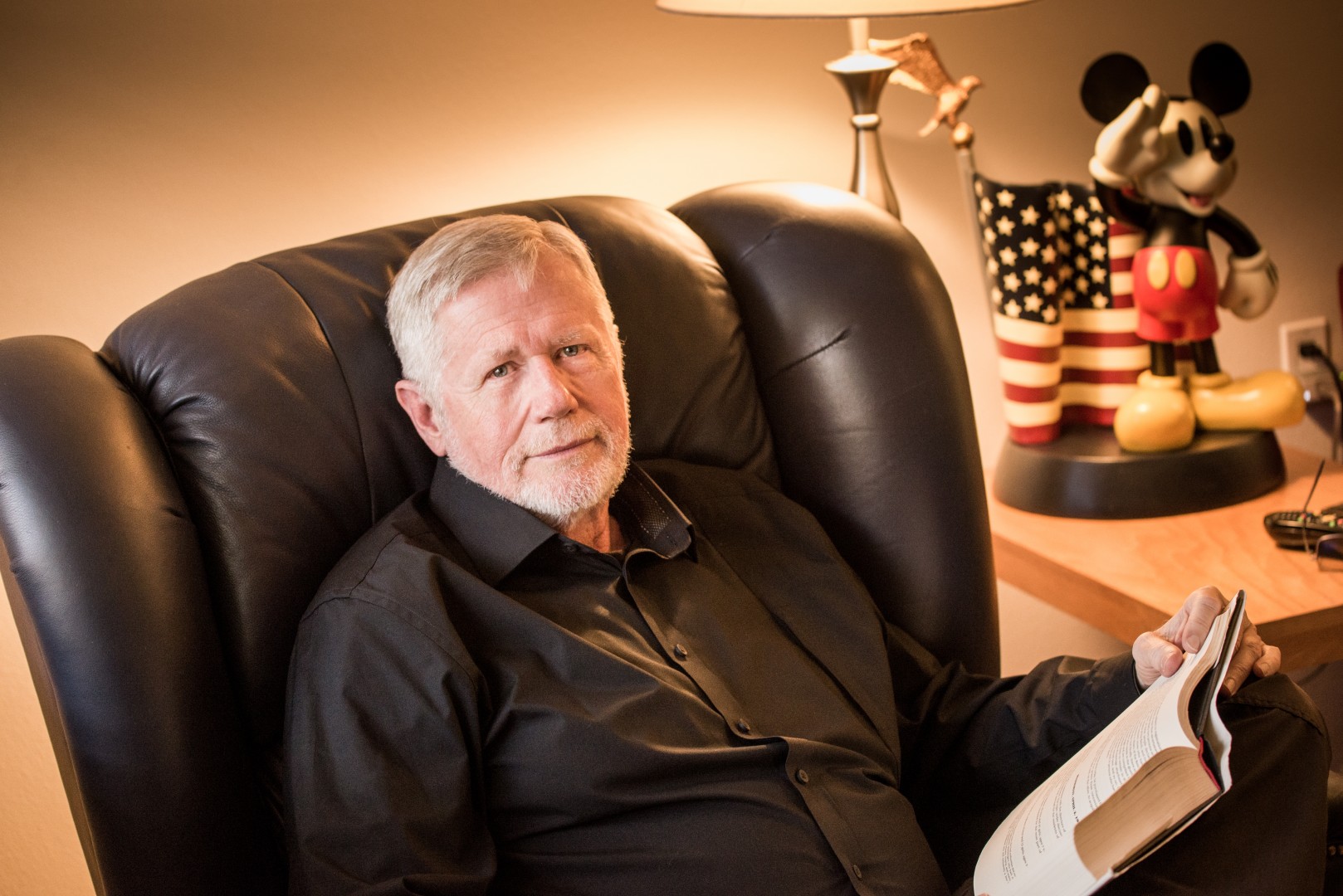
Photos courtesy of Robin Harris Images.
Almost 48 years after Larry Hamon married his wife, Sally, he still calls her “my bride”.
She’s no longer here to see the way his eyes brighten and back straightens just the tiniest bit as he remembers their wedding day. Sally died from Alzheimer’s in 2015.
Larry and Sally first met in college in Sacramento. Her vivaciousness balanced his shyness, and after their first meeting she called her father and told him, “If I can get this guy to take me out, I’m going to marry him.”
She had nothing to worry about. One date turned into dozens, and they were married in 1970. He soon entered Officer Training School, and she became an Air Force wife. They had two children, a boy and girl, and settled in for decades of happiness together. Until one day, when everything changed.
“When she got the diagnosis, we went home and cried,” Larry says. “I’m 63, she’s 62, and we just retired. And now she’s got a death sentence.”
Shortly after Sally was diagnosed, their daughter encouraged Larry to go to a local support group. He went along – reluctantly.
“I don’t know that I would’ve had the courage to go by myself. The first meeting was difficult because it was recognition that I couldn’t do it all,” he explains. “I’ve been an Air Force officer, I’ve been a power system operator – these are high-consequence activities. You make a mistake, you blow things up and people can die. I’m used to being in charge…but with this disease, it didn’t take long to realize I was over my head.”
Pretty soon, Larry found that going to the group became an integral part of his caregiver toolbox. It was a way for him to recharge and learn from people who were going through the same struggles.
“When I got here and found there was a men’s support group, it called to me. It’s guys. It’s a place where I can be more open and frank,” Larry says. “If I break down and cry, they’re going to understand. I felt comfortable immediately, like I was home.”
RELATED | Find a Support & Discussion Group near you
In 2015, Sally’s health took a steep decline. She went from walking and talking one day, to believing the love of her life was trying to kill her the next. Over the course of two months she lost the ability to speak, to walk and even to hold her head up, and then passed away.
Larry continued going to the men’s group as she got sicker.
“I was the first one in the group to lose their partner. I kept going and telling my story, and I went back after she died,” he says. “It seemed to me I could have a role in being a pathfinder. I could share my experience about death and dealing with the sympathy of people who were concerned about me…and the fact that their attention fades over time. All the cards and letters, they stop. People assume you’re going back to normal. But my normal was gone.”
As the men’s group continued to grow over the years, so did their respect for Larry’s compassion and experiences. In 2017, Sarina Barker, the Alzheimer’s San Diego social worker leading the group, asked Larry if he would consider co-facilitating with her. While he was surprised, he agreed to his new role.
“The military has something they call battle buddies, where you go into combat with trusted companions who are at your side and will take care of you if you stumble or fall,” he explains. “As caregivers, we don’t face the terror of combat, but we’re certainly struggling through the realities of this awful disease. The mutual support and affirmation that we give each other helps people survive this.”
Larry says if anyone is feeling uneasy about attending the first time, he’s happy to meet them at the door so they have a friend to walk in with. After all, he’s been in their shoes.
Three years after his beloved Sally passed away, Larry has found happiness in his new life. He’s even started dating, after years of feeling he could never care about someone in that way again.
“Two years ago, I couldn’t have had this conversation about my bride. I would’ve used half your box of tissues,” he says. “Every now and then, I’m still overwhelmed by terrible grief. But because of the wonderful guys in this group, who are helping each other in the struggle to survive, I can enjoy a good cry – and move on.”
Alzheimer’s San Diego offers 37 Support & Discussion Groups across the county, in English, Spanish and Korean. You can give caregivers like Larry the support they need to heal by making a donation today.

